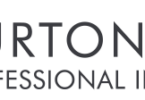Key factors.
In the planning phase, assess how feasible the investigation will be. This stage should be fluid, developing as and when additional information is received.
Consider all time and cost constraints placed upon the investigation.
Logistics – who and how many operatives are required? Are the available? What level of training do they hold and is that at least the minimum level required for an effective and professional investigation?
An Investigator must, assess grade and examine the information given by the client. How detailed is the information supplied? Gain as much quality information, by effective questioning and independant research. This information is the basis of the planning stage and therefore determines the direction of the investigation.
Will your actions be considered unethical or even immoral? In addition to the natural responsibility and duty of care we have to others, the professional standards of the industry must be maintained at all times.
Legal restraints upon the conduct and activities employed during the investigation: Review your actions in their legal framework on a regular basis. This is the “golden thread” that guides all the activities and conduct of a Private Investigator.
Is the equipment suitable? Is it working? How effective will it be for the dynamics of that investigation? Is the application of the equipment suitable and feasible? Are backup operatives available, if required? How and where will this equipment be carried? Every small considerations matter – “Who carries the spare batteries?”
Another area to be considered are physical, natural and geographical restrictions. Laws, practices and proceedures are different as soon as you move out of your national boundary. Effective planning such as reconnoitre and research should be employed.
Effective planning does not only consider the points above, to ensure an effective, professional and successful outcome to the operation. The planning must consider possible negative factors, such as an investigation being compromised, this is particularly relevant to surveillance but can also apply to other scenarios. Risk assessment, personal safety of all, protocols on dealing with violence and confrontation, along with withdrawal and escape routes from the area must be considered. Health and Safety is part of the planning phase.
Finally, consider a conflict of interests. If you have a, “Conflict of Interest”, lets say you are working for a female client, following her husband, when the husband rings up asking about the hourly rate to follow his wife (Your client). In this instance you recognise the conflict of interest and deal with it. Maybe you abandon the investigation? Although some thinkers say that you should divulge the Conflict of Interest to your client, I would advise against it as it might cause problems that cannot be managed.
If you hold shares in a company and are employed to investigate the same company – declare and deal with that conflict in a totally different way. Assign the enquiry to an operative who has no “Bias”?
Just be smart and don’t mess up!








Leave a Comment